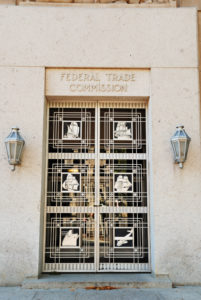
** The FTC Weighs In On OTC Homeopathic Drugs With New Disclosure Requirements **
By: Brent E. Johnson
This past Tuesday, the FTC issued its brand new Enforcement Policy Statement on Marketing Claims for OTC Homeopathic Drugs. In sum, the FTC is fine with homeopathic drug makers advertising and labeling their products as effective in treating certain conditions – as long as they prominently disclose that their products don’t really work.
As we’ve blogged about recently, homeopathy is the brainchild of the German physician, Samuel Hahnemann (1755-1843), who divined the concept of “like cures like.” As the FTC explains, “Homeopathy . . . is based on the view that disease symptoms can be treated by minute doses of substances that produce similar symptoms when provided in larger doses to healthy people.” In what has become the subject of much controversy over time, homeopathy made its way into the Food Drug and Cosmetic Act of 1938. The FDCA defines drugs to include “articles recognized in the . . . official Homeopathic Pharmacopoeia of the United States. (‘HPUS’)” 21 U.S.C. § 321(g)(1)(A). The HPUS is a weighty tome first published in 1897 that sets forth standards for manufacturing homeopathic drugs as dictated by the Homeopathic Pharmacopoeia Convention of the United States. Just how homeopathic remedies became “drugs” under the FDCA is shrouded in the mists of time, but it is generally accepted that New York Senator Royal Copeland, a homeopath, family physician, and sponsor of the FDCA, had a hand in it.
In 1988, the FDA issued its Compliance Policy Guide (CPG) for homeopathic drugs titled, “Conditions Under Which Homeopathic Drugs May be Marketed.” The CPG allows homeopathic drug makers to sell OTC products without demonstrating their efficacy. CPG Sec. 400.400. This allowance, however, applies only to homeopathic products intended for “self-limiting disease conditions” (i.e., medical problems that will go away on their own anyway) that are amenable to self-diagnosis and treatment. The CPG mandates that OTC homeopathic drugs are labeled as “homeopathic” and that the labels display at least one major OTC indication for use.
The sale of homeopathic remedies has grown hand-in-hand with nutritional supplements over the past two decades. Unlike supplements making nutritional deficiency, structure/function, or general well-being claims, however, the FDA does not require OTC homeopathic products to carry a disclaimer such as, “This statement has not been evaluated by the Food and Drug Administration. This product is not intended to diagnose, treat, cure, or prevent any disease.” So, in the world of OTC homeopathic drugs, the FDA actually requires a use indication but doesn’t require substantiation or a disclaimer.
Enter the FTC. Responding to pressure from consumer advocacy groups and, particular to this case, the Center for Inquiry (an organization that aims “to foster a secular society based on science, reason, freedom of inquiry, and humanist values”), the FTC issued its Enforcement Policy. In it, the FTC impliedly acknowledges that, even though it has always had enforcement authority over homeopathic OTC drug makers, it has generally chosen not to police false or misleading advertising or labeling of their products due to the FDA’s 1988 CPG. But no more! Directly contradicting the CPG’s requirement of usage indications without the need to demonstrate efficacy, the FTC is announcing to homeopathic product makers everywhere that their products are not exempt “from the general requirement that objective product claims be truthful and substantiated.”
The FTC believes this will be no easy feat: “For the vast majority of OTC homeopathic drugs, the case for efficacy is based solely on traditional homeopathic theories and there are no valid studies using current scientific methods showing the product’s efficacy.” So what’s a homeopathic OTC drug manufacturer to do? Just add to your product’s label (in close proximity to the FDA’s required efficacy indication or incorporated into it) that “(1) there is no scientific evidence that the product works and (2) the product’s claims are based only on theories of homeopathy from the 1700s that are not accepted by most modern medical experts.” Simple enough (although try fitting it on a label). But the FTC further warns, “In light of the inherent contradiction in asserting that a product is effective (the FDA’s requirement) and also disclosing that there is no scientific evidence for such an assertion, it is possible that depending on how they are presented many of these disclosures will be insufficient to prevent consumer deception.” The FTC recommends that marketers conduct consumer surveys “to determine the net impressions communicated by their marketing materials.” And to make sure there is no possible avenue of escape, the FTC includes this flourish: “Marketers should not undercut such qualifications with additional positive statements or consumer endorsements reinforcing a product’s efficacy.” In short, if you can’t say something bad about the product, say nothing at all.
